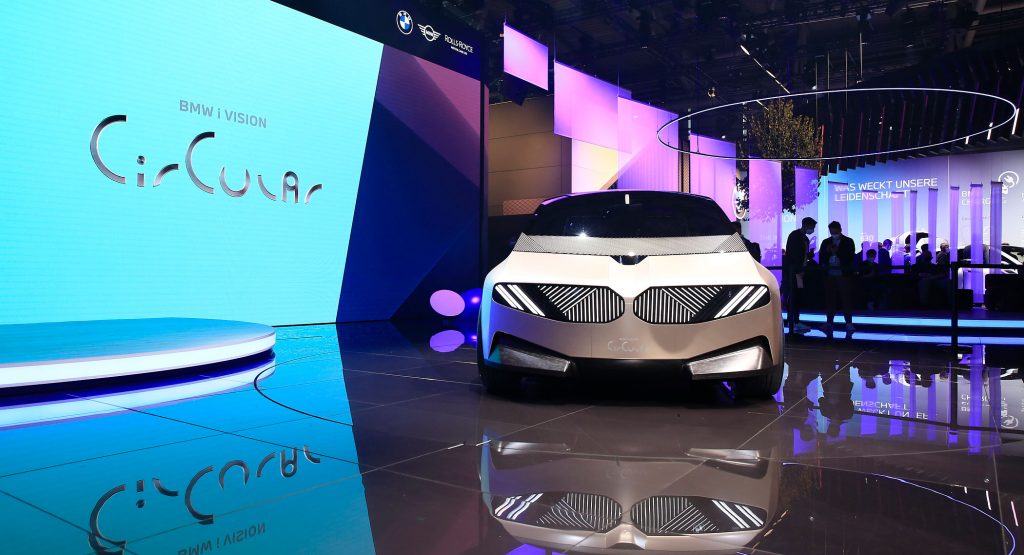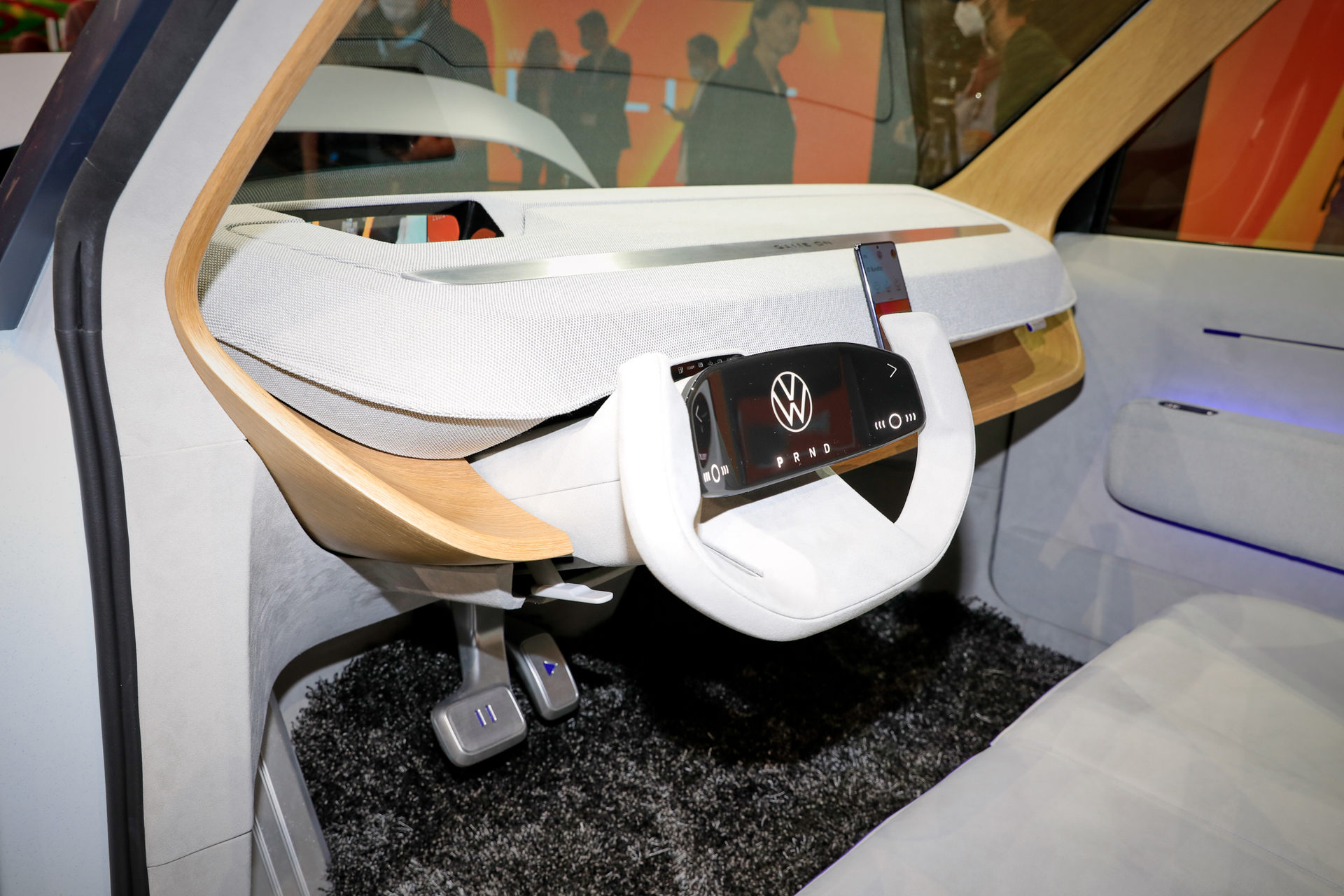Want to make a car greener? Make it electric. That’s the message we’ve been fed over the last decade or so, and it’s the thinking that has resulted in legislation that will ban the sales of ICE cars and SUVs in many countries by 2030.
But this year’s Munich Motor Show gave manufacturers a platform to remind us that there’s far more to a vehicle’s green credentials than the CO2 it does, or doesn’t, produce.
Read: 2021 Munich Motor Show A-Z Debut Roundup
Munich’s theme was sustainability, specifically how to create a vehicle that is ecologically-minded from top to tail, and not just under the hood.
Yes, BMW’s i Vision Circular was a small EV. But there was little mention of its electric drivetrain, and plenty of focus on how the body panels were made from recycled metals, and how every component could be recycled again at the end of the car’s life, including the battery.
The interior of VW’s ID. LIFE city car featured components made from bio-oil, natural rubber and rice husks, and even Porsche’s Mission R racer proudly crowed that its composite body panels were made using renewable natural fibres.
Related: Genesis To Become EV-Only Brand From 2025, Carbon Neutral By 2035
The idea of incorporating sustainable materials is nothing new, of course. BMW’s own i3 featured an interior partly made from renewable raw materials and recycled plastics almost a decade ago. But it’s great to see that the philosophy (and the idea of end-of-life recyclability) is becoming as normalised as EV power.
We’re all for it, and not only because we applaud the environmental benefits. We love the lighter, more natural look sustainable materials bring to car interiors. It might even mean we can finally get rid of the awful piano black trim that has dominated the console design of so many cars for years.
But on the subject of sustainability, the fact that we’re talking about a live motor show at all suggests the concept of the motor show itself might be sustainable.
Covid appeared to have hastened the demise of the traditional show, and while Munich felt very much like a national German event, particularly with Mercedes’s deluge of new products, it created a buzz you just don’t get from plain digital reveals spaced weeks apart.











